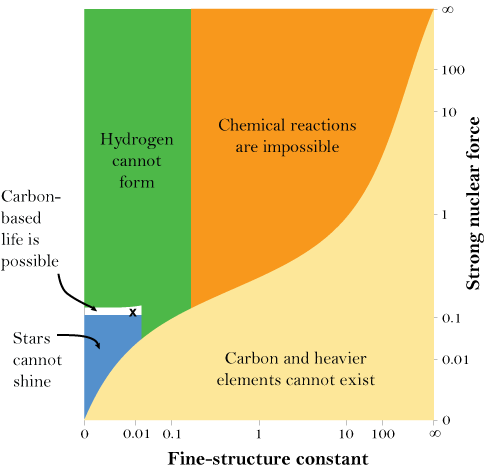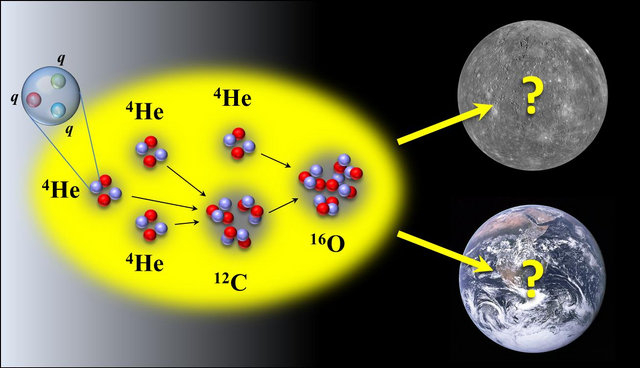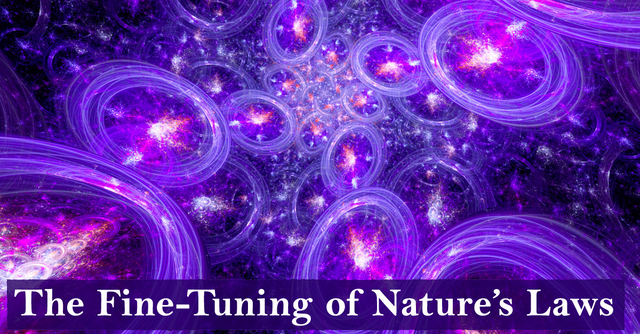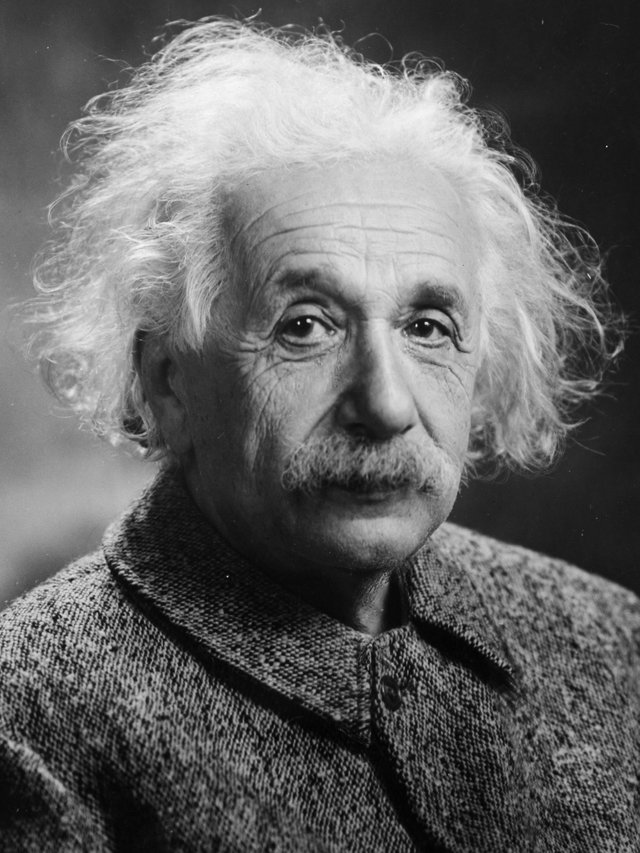A brief review of the arguments against the fine tuning of the universe
In recent years, many theologians and Christian apologists have persuaded themselves and their followers that they have a shattering and uncompromising scientific argument in favor of the existence of God. They argue that the parameters of physics are so accurately tuned that if at least one of these parameters was slightly different from its current value, then life - and even more so a person's life - would be impossible anywhere in the universe.
Of course, like all arguments in defense of creation, this is evidence from ignorance, which in principle can not convince anyone, since it is impossible to consistently prove that the values of these parameters can not be natural. But they do not give up their attempts.
Assuming without any justification that these parameters are independent and could take any value from a wide range, they conclude that the probability of the appearance of the universe with our particular set of parameters is infinitesimal. Assuming further without any justification that the probability of having a divine creator is not so infinitesimal, they conclude that there was a creator who precisely tuned the universe for life, and specifically for human life. Note that, moreover, there is no reason to believe that this creator was a personalized God, revered by Christians, Muslims and Jews, or the god of any other widespread religion. The deistic creator fits no better.
William Lane Craig in his argument with the philosopher Massimo Pigliucci in 1998 (and in other disputes, the exposition of which can be found on his website) related the arguments thus:
"Over the past 30 years, scientists have found that the existence of an intelligent life depends on the complex and delicate balance of the initial conditions that were established in the Big Bang itself. Now we know that universes that are unsuitable for life are much more likely than any suitable ones like ours. How much more likely?
The answer is that the probability that the universe will be suitable for life is so vanishingly small that it is impossible to comprehend and calculate.

source
What if we tweaked just two of the fundamental constants? This figure shows what the universe would look like if the strength of the strong nuclear force (which holds atoms together) and the value of the fine-structure constant (which represents the strength of the electromagnetic force between elementary particles) were higher or lower than they are in this universe. The small, white sliver represents where life can use all the complexity of chemistry and the energy of stars. Within that region, the small “x” marks the spot where those constants are set in our own universe.
According to John Barrow and Frank Tipler, a change in the force of gravity or weak interaction to only one part out of 10,100 would exclude the possibility of existence of life in the universe. In the Big Bang, there are about 50 such quantities and constants that should have been precisely tuned exactly as it is now, so that the Universe would allow existence of life. And not only should each quantity be perfectly tuned; Their relationship among themselves, too, must be precisely adjusted. Thus, improbability is multiplied by improbability and improbability, until we are dizzy with incomprehensible numbers. "
The fact that Craig is dizzy and he can not personally comprehend these numbers does not mean that they are really incomprehensible to everyone else.
we read a lot on the topic of fine tuning, but for completeness of the presentation it is necessary to go through some points here. I will try to bring this topic in line with modern data and, if possible, do without unnecessary repetition. Recently, I prepared a chapter with arguments against the fine-tuning for an anthology published in the publishing house of the Oxford University "Debating Christian Theism" (Debating Christian Theism) and I will refer to this material. The Christian philosopher Robin Collins of Messia College has argued in favor of fine tuning in the accompanying chapter. In it he criticizes many of my past arguments, and here I will answer his criticism. These answers have not been published anywhere.
Multiverse offers a very simple and completely natural solution to the problem of fine tuning. Let our Universe is only one of an unlimited number of individual universes that extend to unlimited distances in all directions and for unlimited time into the past and into the future. In that case, we just happened to live in a universe that suits our type of life. Not our particular Universe is exactly tuned to us, but we are exactly tuned to it.
Explanations about the Multiverse are enough to dismiss the argument for fine tuning. Note that the Multiverse hypothesis does not need to be proven to reflect claims for fine tuning. It just needs to be believable. On those who argue with this, lies the burden of proving the opposite. That they did not. In any case, the Multiverse hypothesis is not yet verified, so we need to continue verifying the likelihood of the divine exact tuning hypothesis for our one and only universe.
In my 2011 book, "The Fallacy of Fine Tuning," I offered only natural explanations for the values of the so-called fine-tuned parameters, which are most often mentioned in the theistic literature.
Many authors have written about the problem of fine tuning, often using the misleading term anthropic principle, which suggests that it is somehow connected with people. They insist that certain parameters are configured with perfect accuracy. And under ideal accuracy they mean not at all an error in the range of about 10% or even 1%. On the contrary, they argue that some parameters should be adjusted to within one part by 50-100 orders, so that the existence of life is possible.
Before I move on to specific parameters that are supposedly so finely tuned, let me say a few words about my basic interpretation of their meaning. Physical models are created by man, and therefore all the quantities, parameters and laws that arise in these models are also artificially to a certain extent. It amazes me, when they are considered to be accurately minded by God or nature, to me it seems simply absurd. Physicists from another galaxy could have their models with a completely different set of parameters.
Thus, parameters that are supposedly accurately tuned are not required to have any special ontological significance. Naturally, the models must be consistent with observations, and therefore, as I have already stressed, they must somehow relate to objective reality, whatever it is. They are not arbitrary, just as the landscape is not an occasional set of multicolored spots (unless it was written by Jackson Pollock).
Let us pass to the specifics. The physicist and apologist of Christianity, Hugh Ross, lists 29 "characteristics of the universe" and 45 characteristics of the solar system, "which must be precisely tuned so that some kind of life is possible." First of all, this statement is incorrect. More than half of Ross's parameters refer not to life in general, but to life only on our planet, and some even specifically to human life.
The most common misconception that Ross and his like-minded sinners is that they see something special in the carbon life that exists on Earth, and suggest that this is the only possible type of life. According to Christian beliefs, people are created in the image and likeness of God (Genesis 1:26), so it is not surprising that it is difficult for them to imagine other forms of life. However, since there is only one example, they simply do not have enough data to conclude that all other forms of life are impossible, whether they are based on carbon chemistry or not.
Speaking about the possibility that the parameters can vary randomly, Collins asks: "Why they should have entailed exactly the set of laws that is necessary for life?"
Actually, that's the whole point. They did not have to be accurate to lead to some form of life somewhere in this vast universe. In the book "Delusion about fine tuning," I showed that wide ranges of physical parameters could well lead to such conditions as, for example, the long life of stars, which in principle could be suitable for the evolution of life in one form or another ...
The following is a list of the logical and scientific errors of the adherents of fine tuning (not all of them make all these errors), which I found when studying this issue.
♦ They make statements about fine tuning, based on the parameters of our universe and our lifeform, ignoring the possibility of other forms of life.
♦ They declare about fine tuning of physical constants, whose values are arbitrary, such as c, h and G.
♦ They call precisely tuned values, the values of which are strictly defined by cosmological physics or have a wide permissible range, such as the ratio of the number of electrons and protons, the rate of expansion of the universe and the mass density of the universe. They are not even considered variables in the modern standard cosmological model.
♦ They claim that the ratio of the forces of electromagnetic and gravitational interactions is precisely tuned, while in fact this value can not be determined for all cases.
♦ They argue that the excited state of the nucleus of the carbon atom should have been precisely tuned so that the stars could produce enough carbon for life, while calculations show that a wide range of energy levels of this state would produce enough carbon.

source
♦ They declare the fine tuning of the masses of elementary particles, while the limitations for these masses are prescribed by conventional physics and these restrictions are sufficient to allow some form of life to be possible.
♦ They assume that the forces of different interactions are constants that can independently vary from one universe to another. In fact, they depend on each other and differ at different energies, and their relative values and energy dependencies are almost strictly determined by theory, at least within the limits that allow the existence of some kind of life.
♦ Most of them make a serious analytical error, changing only one parameter at a time and counting all the others as fixed. Thus, they overlook the fact that changing one parameter can be compensated for by changing the other, thereby expanding the range of parameters of a liveable universe.
♦ They misunderstand or misuse the theory of probability, ignoring the fact that events with "mind-blowing" low probabilities occur billions of times a day. The only way to use a small probability as an argument in favor of something that is unlikely to happen is to compare it with the probabilities of all the alternatives. What is the probability of God? In the book "Delusion about fine tuning," I compared the calculations of the probability of God made by two physicists, one believer and one unbeliever, using intricate Bayesian statistics. The believer received a result of 0.67, and the unbeliever received 10 ^ 17!
♦ They claim that many of the parameters of the Earth and the solar system are accurately tuned for life, but do not think that among the quadrillion of planets in the visible universe, in the zones of habitation of their stars, and countless of their numbers beyond our visibility, there are many planets with suitable properties for life. And yet, it is hardly possible to call the universe favorable for life. If God wanted to fine-tune it for life, he could make it much more favorable.
♦ Proponents of fine tuning are wrong in rejecting the explanation using the multiverse as unscientific. It is not at all unscientific to make assumptions about invisible and unconfirmed phenomena predicted by existing models, which so far agree with all known data. The existence of the neutrino was predicted in 1930 on the basis of the generally accepted principle of energy conservation, but the particle was fixed only in 1956, and indirectly. If the physical community and funding organizations were guided by the same principle as the adherents of fine-tuning, my late colleague Fred Reines and his (also the late) co-author Clyde Cowen could not have received funding and support to begin research, during which Finally, neutrinos were discovered.
♦ The modern and very successful cosmological model LCDM contains only six parameters, and no one has yet shown that one of them is precisely tuned.
As follows from my reasoning, what seems to be an accurate setting is explained technically and some preparation is required to understand these explanations. After doing the proper analysis, it turns out that there is no evidence of a precise adjustment of the universe for life, and all that is given for them is another example of evidence from ignorance that is doomed to failure because of the implicit assumption that there are phenomena that science never can explain without invoking God.

References for text :
- https://futurism.com/new-evidence-anthropic-theory-fundamental-physics-constants-underlie-life-enabling-universe/
- https://www.thenewatlantis.com/publications/the-fine-tuning-of-natures-laws
- https://www.slideshare.net/arielroth/11-fossils-and-creation-11697540
- http://slideplayer.com/slide/1577992/
- http://christianapologeticsalliance.com/2013/11/16/arguments-from-cosmological-fine-tuning/
Support @steemstem and the #steemstem
project - curating and supporting quality STEM
related content on Steemit


What a great read! I'm a firm believer in the ancient alien Theory, and I've also educated myself with quantum mechanics! There's so many possibilities that are Beyond our comprehension! Very interesting to see what a technology takes Mankind in the next hundred years! Thanks for the great post and food for thought!!
The propensity for people to believe things with no evidence or even compelling evidence to the contrary never ceases to amaze me.
Yes, fine-tuning is puzzling... I will take the particle physics part in my discussion below.
Fine-tuning is so puzzling that it consists (actually, naturalness to be precise) in one of the guiding principles paving the development of theories extending the Standard Model of particle physics. We indeed have strong hints showing that the Standard Model is an effective theory originating from a more fundamental one to be discovered. In this more general theory, the 26 parameters of the Standard Model could find a nice less fine-tuned explanation.
So, there is still a lot to be discovered, current models have pros and cons. But there are models very useful in the meantime we discover something more fundamental. This by no mean means we will never be able to explain something without invoking some god...
I like your post.Your idea was truely awesome and it really helped me
I like your post.Your idea was truely awesome and it really helped me
It's the anthropomorphic view of the universe. The only reason we observe the constants as fine-tuned is that we wouldn't be here if they were not. There might be millions of universes created and we happen to observe specifically the one we are in.
I like your write, I write astronomy and technology writings on my profile. For now I am only writing in Turkish, but in the future I will also translate my texts into English. If you support me, you will make me happy. :)
When we talk about God people often quote 1000 year old scripture to prove God is real, but in my opinion if God is real we should be able to use modern examples/proof for the argument. Can God die?
Why does a God need to be praised or is that a human construct to make up for our own deficits.
Is God absent?
Where was God last seen in action?